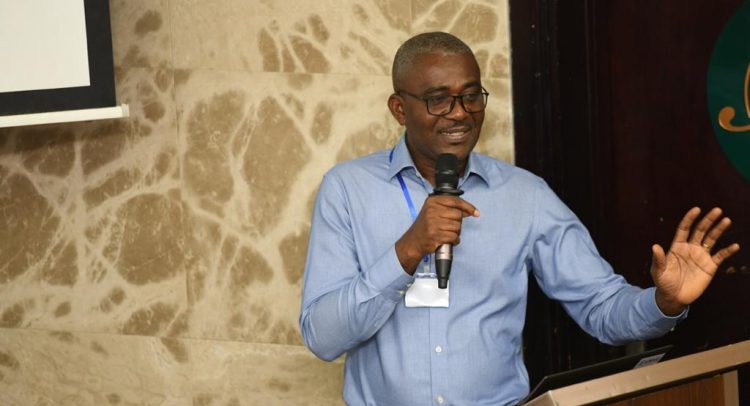Eric Sunu, speaking at the Accra roadshow
The US government, through its Agency for International Development (USAID’s -funded Feed the Future Ghana Market Systems and Resilience (MSR) Activity, has announced a $ 6 million grant program to support sustainable on and off-farm employment and investment opportunities.
The grant will assist successful applicants in the improvement of farm productivity, access to markets, and improved market efficiency by leveraging investments in agricultural and non-agricultural enterprises in northern Ghana.
The grant support forms part of a five-year program aimed at increasing the commercialization and profitability of agric markets, the institutional capacity of market actors, improving market access and quality of business service, and the enabling environment for local actors.
Speaking with the media during a road show in Accra, Collaborative Learning and Adaptation (CLA) Director at MSR, Eric Sunu, said the roadshow which would move to Tamale, Bolgatanga, Wa, and Nalerigu is to inform stakeholders about the grant and how to go about applying for the funds.
He said MSR will co-invest in proven technologies and innovations on a grant matching principle on projects that target mainly women, youth, and persons living with disabilities.
“Grant Program will target private sector businesses and non-governmental organizations whose current work or businesses focus on the Activity’s ten targeted crops (maize, shea, Bambara bean, soybean, cowpea, groundnuts, moringa, mango, and horticulture) in 17 designated districts across the Northern, North East, Upper West, and Upper East regions.
Mr. Sunu said the grant funding is expected to support and strengthen agricultural market systems that will result in greater efficiencies, productivity, and investment in goods and services that drive agriculturally led economic growth, and ultimately increase income for households in northern Ghana.
Team Leader, Agribusiness and Financial Services, Raymond Denteh, said eligible groups include farmer-based organizations, out-grower businesses, including associations and/or co-operatives, village savings and lending associations, small and medium enterprises, private sector umbrella organizations, and Ghanaian non-governmental organizations.
Others, he said include U.S. non-governmental organizations, anchor firms (buyers, processors, exporters, etc.), business service providers, selected public institutions including technical services organizations, and local government institutions.
He said the U.S. government Feed the Future addresses the root causes of poverty and hunger hence the focus on women, youth, and persons living with disabilities.
“So we choose activities like horticulture which women can engage in during the off-season to sustain them till the next farming season,” he said. “This is done by boosting inclusive agriculture-led economic growth, resilience, and nutrition in countries with great need and opportunity for improvement.”
By Jamila Akweley Okertchiri

